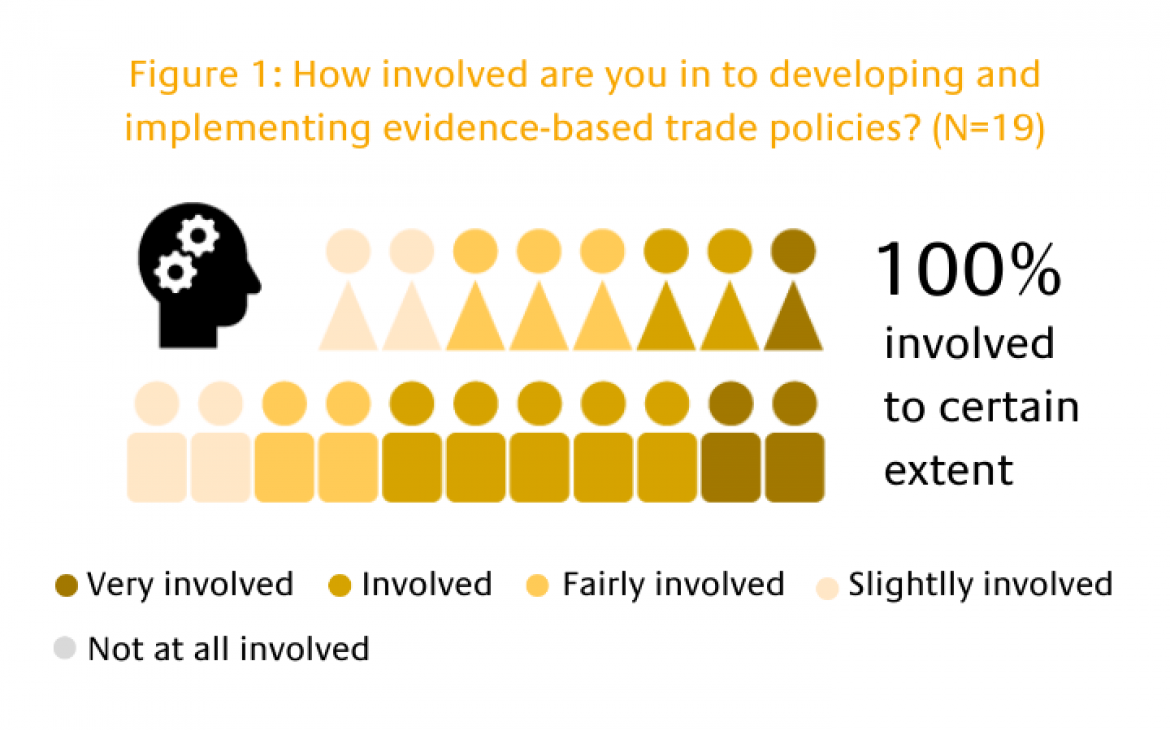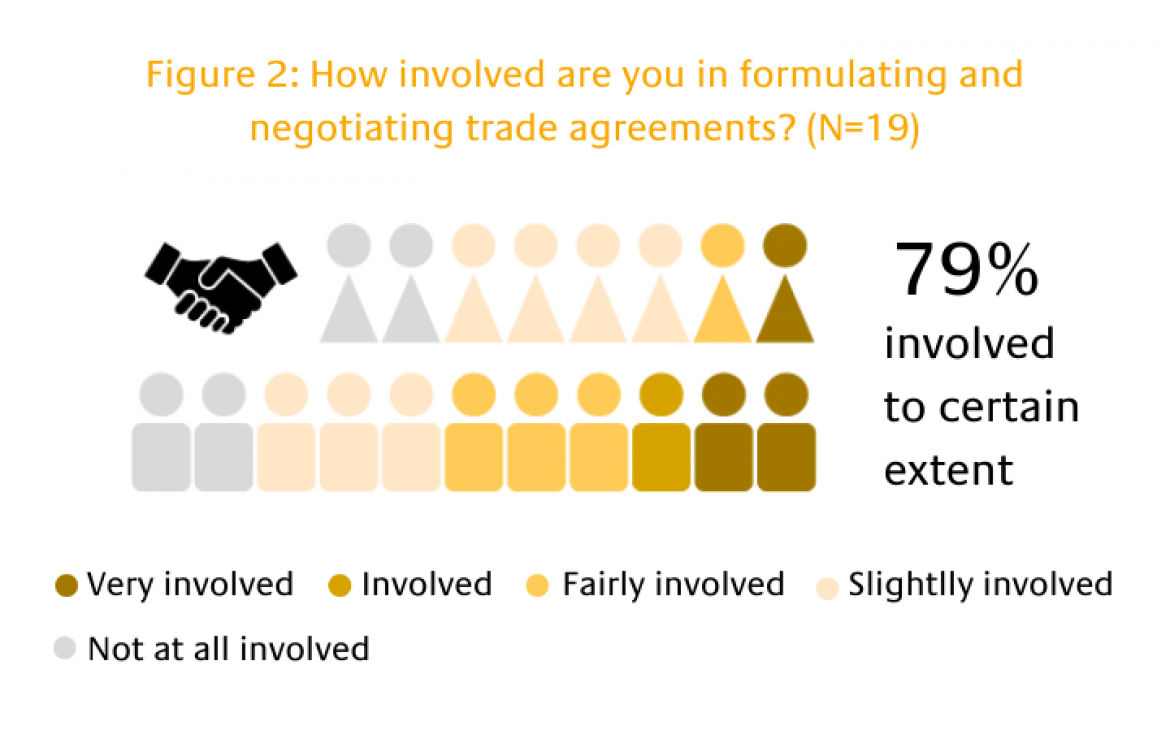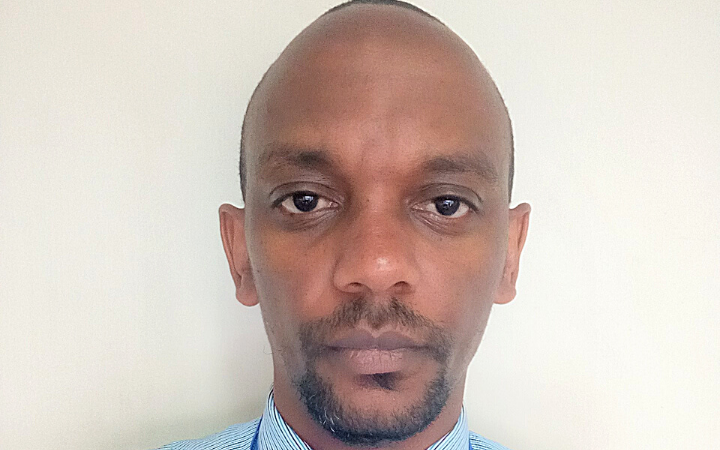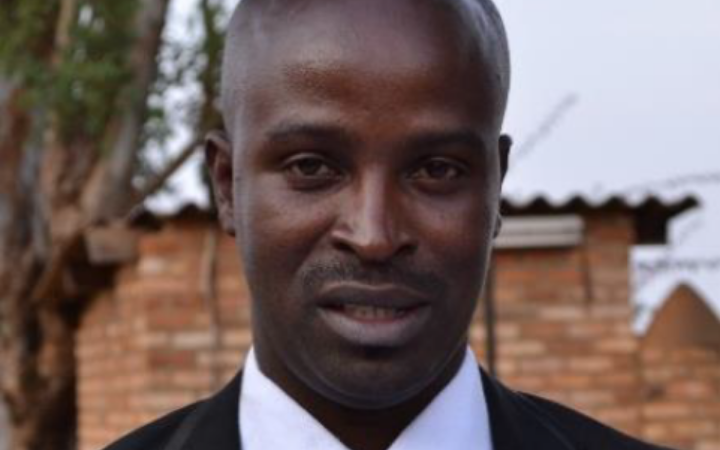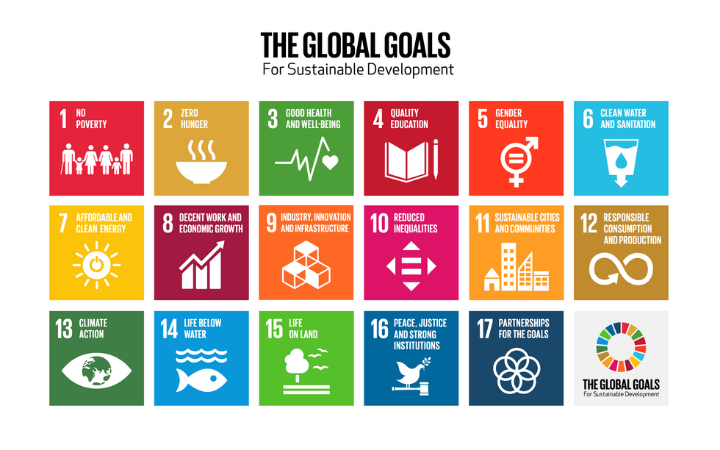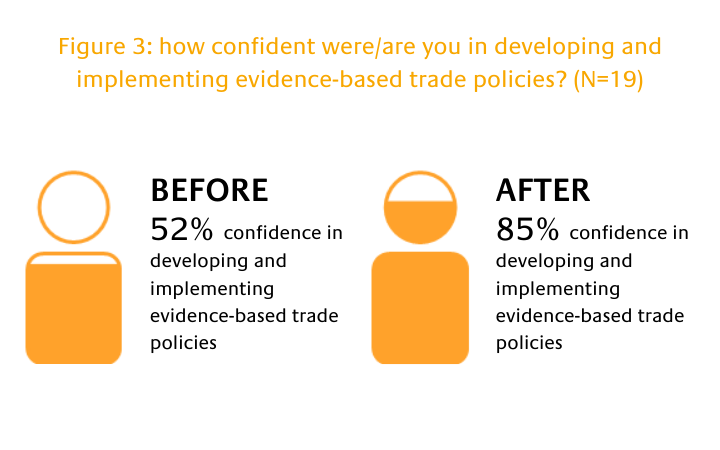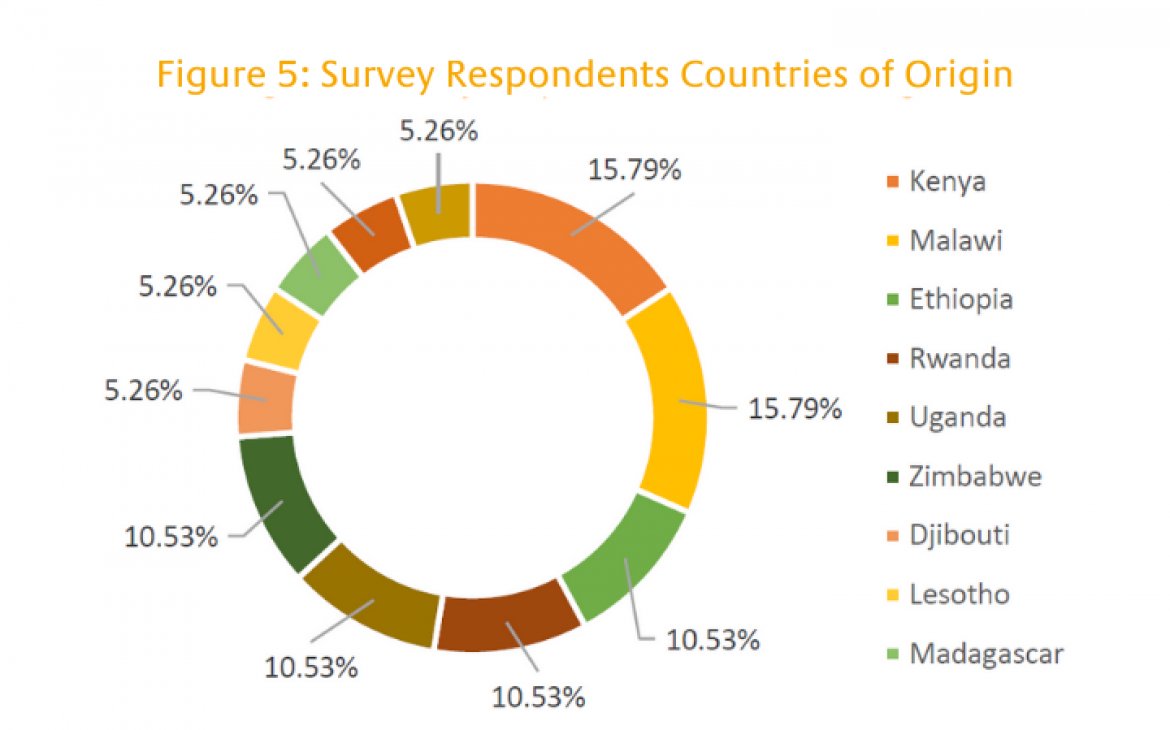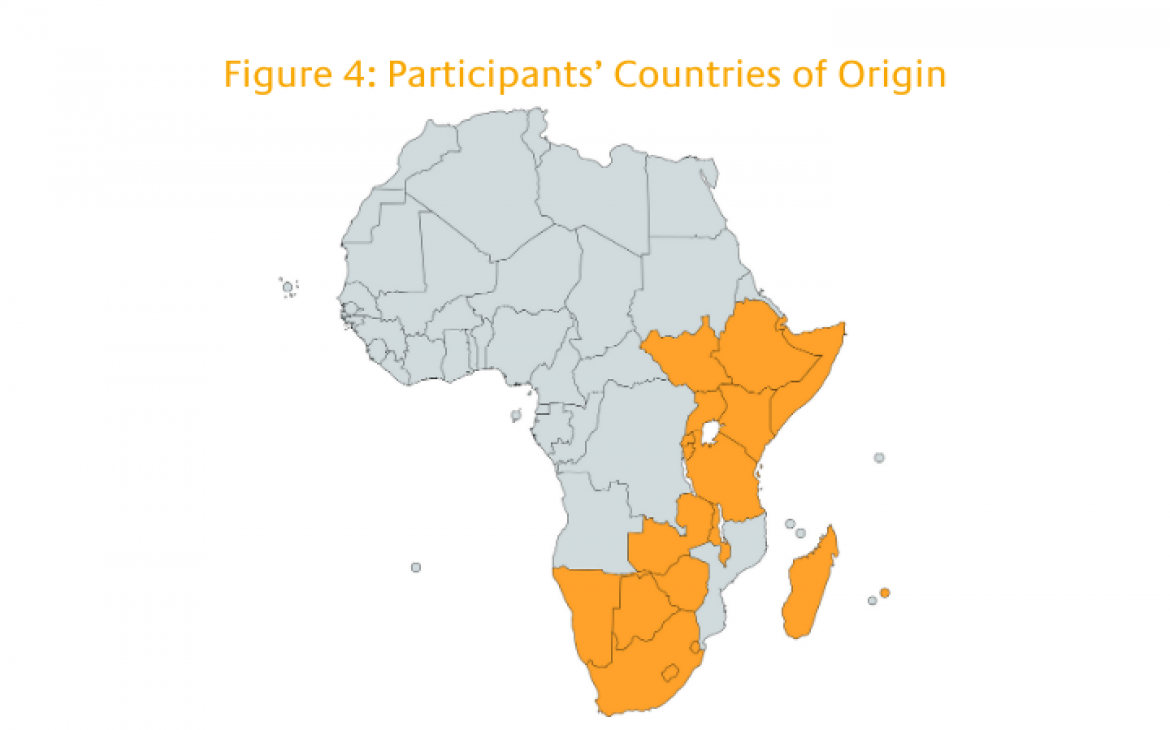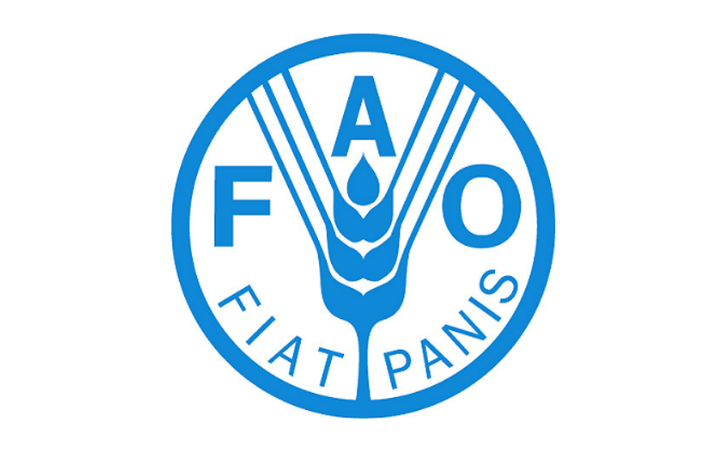Background
The Food and Agriculture Organization of the United Nations (FAO) and the United Nations Institute for Training and Research (UNITAR) launched its joint e-Learning course on “Trade, Food Security and Nutrition” in July 2017. The course was attended by 65 representatives from government and related authorities directly involved in the formulation and implementation of agricultural policies and programmes in Eastern and Southern Africa. The Planning, Performance Monitoring, and Evaluation Unit of UNITAR wrote this story, 15 months after the completion of the course, to determine the longer term impact this course has had.
The four-week course aimed to strengthen capacities in the Africa region to develop and implement evidence-based trade policies and to formulate and negotiate trade agreements taking into consideration both the needs for economic growth and structural transformation as well as food security and nutrition concerns. The relationship between trade and food security is attracting increased attention on both the trade and the development agendas, including in the 2030 Agenda and the Sustainable Development Goals (SDGs). The challenge is how to ensure that the expansion of agricultural trade works for and not against the Sustainable Development Goals. This challenge has been at the forefront in negotiations on the changes to the current global agreements on agricultural trade that are needed to enhance food security.
For this story, UNITAR conducted a survey of the 42 participants that completed the course and conducted interviews with Kelvin Nkai, Jean-Baptiste Ukwizagira and Meck Chikaphupha, three participants of the course (1). The survey results show that all respondents are currently involved in developing and implementing evidence-based trade policies to varying degrees, over a year after the end of the course (figure 1), and 78.5 per cent are involved in formulating and negotiating trade agreements to some extent (figure 2). The survey also showed that almost all participants, when asked about the specific learning objectives of the different modules of the course, are at least somewhat confident of still meeting those objectives, showing that the knowledge and skills have taken hold. This finding is corroborated from various interviews to ascertain a deeper impact of the course.
(1) Nineteen responses to the survey, from a total of 42; a response rate of 42%
Impact Story - Kelvin Nkai
Kelvin NKAI
Export Promotion Council of Kenya
Discusses new ways of approaching trade negotiations
Calling us from his day off in a humid Mombasa where he was spending the weekend, it is clear Kelvin has a real thirst for knowledge and strives to improve and learn whenever possible. It was while browsing the UNITAR website looking for opportunities that he first learned about the FAO-UNITAR course. It was the way that agriculture and trade policy issues were intertwined in the objectives and methodology that drew him to the course. He says he applied immediately, and without hesitation; it seemed a perfect fit for him. Kelvin works for the Export Promotion Council of Kenya, and until recently he worked in the Research, Policy and Planning Division. It is in his work here that the most obvious impact of the course is visible. “Achieving the course’s learning outcome led to increased job responsibilities, attitudinal changes and increased confidence.”
Kelvin had some experience dealing with trade policy formation and negotiations, although this experience was limited when it came to issues of agriculture. Before the training, his experience related to trade and agriculture amounted to engaging with a World Trade Organisation delegation that came to Nairobi and being involved in some bilateral meetings. It was there that he gained an interest in agriculture policy. He attended several other trade related trainings online in similar topics before he took part in the course. He is very clear, however, that it was the FAO-UNITAR course that cemented his knowledge, bringing together, consolidating and building on the knowledge he already had, so that he could use it in his daily work. The training in this sense exceeded his expectations. Kelvin estimates that approximately 80 per cent of his time working in the trade policy division he was dealing with trade related aspects of food security and agriculture related issues. He was able to put into practice what he had learned and to apply knowledge from the course to his daily work.
Immediately after the course, he got the opportunity to engage in a forum where an agriculture implementation strategy was being developed for Kenya. This was perfect timing for Kelvin, as the course was still fresh in his mind and agriculture is a key sector for Kenyan trade. Kelvin used knowledge from the course to contribute to the development of the Kenya export policy; he was confident in engaging in the forum, contributing ideas that helped form the eventual export strategy. He is certain that the course is to thank for this, and that it “built his capacity a lot.” The theme of increased confidence and understanding, which in turn has a positive impact on work or policy, and thus institutional change, came up again and again in our conversation, and runs through all the aspects of the impact of this course.
Since the course, Kelvin has also been involved in various other forums including being part of the Kenya delegation in the development of the East African Community (EAC) position on Rules of Origin negotiations for the Tripartite Free Trade Area (TFTA). The TFTA is a proposed African free trade agreement between the Common Market for Eastern and Southern Africa, Southern African Development Community and East African Community. These negotiations involve looking at specific tariff lines that include agricultural products, between the three regions involved in the negotiation. The course helped him immeasurably for this role, both in terms of knowledge he could bring to the discussion, but also in a slightly unexpected way. The course encouraged him to take a more proactive approach to the role, reading more, preparing well in advance for meetings. This was true for these negotiations for the EAC, but this has carried on and shows a real attitude change, in bilateral meetings and generally in his day to day life.
The course helped Kelvin look at things more critically, to take more time and not to be in a rush to make decisions or to agree. It gave him a good perspective on how to undertake negotiations in bilateral meetings for trade agreements beyond those related to agriculture. Now I can sit… and engage from an informed perspective. Before the course he would work in trade flow analysis, but after the course he decided to change his approach to this. By undertaking more in-depth analysis, and doing a comprehensive background on the topic, by the time he comes to a negotiation he is much more prepared and thus can advise and engage from an informed perspective.
Kelvin has also been able to share the knowledge that he has gained from the course. He is currently in charge of a number of people in the department in a supervisory and support role. With them, and other peers and colleagues, he regularly shares much of the information from the course, thereby multiplying the effects. For Kelvin and his team, the impact of this training has been significant and long lasting.
Impact Story - Jean Baptist Ukwizagira
Jean Baptist Ukwizagira
Rwandan Ministry of Trade and Industry
On the benefits of certification
The experiences of Jean Baptiste match quite closely with those of Kelvin, although there are some differences. Jean Baptiste works for the Rwandan Ministry of Trade and Industry, and like Kelvin is focused on trade negotiations and policy, although with even more of a focus on food security. Soon after the course, and due to the fact that he was so involved in the course and animated in extolling the virtues of the course when he returned, he was selected as a food security expert, working with FAO Rwanda and the national statistics office, together forming an expert group on food security. He has also been part of a team that has produced a report for the Rwanda – Integrated Food Security Phase Classification (IPC), which is a multi-partner initiative for improving food security and nutrition analysis and decision-making. The report was a Chronic Food Insecurity analysis, which looks at various issues related to food security in Rwanda, with Jean Baptise doing much of the analysis for the report which will be published soon.
He also helped in developing the National Strategy for Transformation (NTS1), which is the Government of Rwanda’s long term social and economic development strategy. The NTS1 consists of three pillars, and Jean Baptise has been involved as one of the key staff on the pillar for economic transformation, specifically in providing the necessary information on agriculture and livestock productivity and trade. The goal here is to transform agriculture so that it not only meets the demands of providing food for the people, but to cultivate for business and export. Jean Baptiste was able to bring knowledge from the course to this process, especially in helping to form the Private Sector Development Strategy, by actively participating in sub-sector working groups on industry and exports; SMEs, productivity and employment; and investment and regulation). With his background in statistics, he contributes by giving reliable information on the trading and the production systems in Rwanda for this strategy, and this is further used to develop the National Export Strategy (NES). He is also currently involved in revising the SME policy, with a focus on entrepreneurship.
Jean Baptise says that the information from the course has been useful in all of the above discussions and work on policy, allowing him to bring a level of expertise and awareness of the issues that he was unable to before. Perhaps of even greater use, according to him, is the informal learning that went along with the course, especially in the weekly forum of discussion on the weeks topics. He would listen to the thoughts and presentations from others on the course, from a wide variety of backgrounds, countries and areas of expertise. He took notes on what these people were saying; small tips, nuggets of information, readings they found particularly useful. This kind of discussion forum has in fact continued after the course in a non-formal way. Jean Baptiste says that several of the participants from the course are part of an email group, where they send each other interesting or useful readings, raise questions and ideas, and provide each other with advice. While this was not an intended outcome of the course, this kind of community of support and ideas is welcome and a sign of the continuing impact that this course has had.
For Jean Baptiste, the course has provided the building blocks necessary to get ahead, giving him the foundations and basic knowledge required to work in trade and food security. His drive to learn is shown by the fact he asked for more advanced courses in the same topic, as he wants to go deeper and further build his expertise. Jean Baptise had worked for some time before the course in the Ministry of Trade and Industry, but without an expertise in food security and agriculture. When someone would inquire about food security or agricultural agreements at his work, he did not feel confident in providing answers. Now, with his expanded knowledge, backed up by his certificate, he is better equipped to deal with this topic. Thanks to his involvement and certification, he is considered a food security expert in his department. The impact for him personally, on his career and for his department continues, as he is certainly not done yet.
Impact Story - Meck Sanderson Chikaphupha
Meck Sanderson Chikaphupha
Further Impact and the Sustainable Development Goals
For this Impact Story, we also interviewed Meck Chikaphupha from Malawi. While unfortunately the phone connection made it hard to hear, what is clear is that the course has had a large impact on Meck as well. During the course, Meck was working in the Department of Agricultural Planning Services and specifically in the Policy Development Unit of the Ministry of Agriculture, Irrigation and Water Development. Since taking the course, Meck has enrolled in a master’s degree programme in Public Policy and Governance in Mutare, Zimbabwe. The decision to return to university to study for a masters was partially informed by his experiences on the UNITAR course. Professionally, Meck was part of the coordinating committee in the development of the National Agriculture Investment Plan (NAIP), having been one of the team members who developed the National Agriculture Policy in 2016. The NAIP is Malawi’s plan to develop the agricultural sector of the country to “break the cycle of food insufficiency in the country” to quote Minister of Agriculture, Irrigation and Water Development Joseph Mwanamvekha. The plan provides a framework, coordinating and prioritising investments by various government agencies, development partners and non-state actors in the agriculture sector. Meck was able to bring the knowledge and confidence gained from the course to his involvement in drafting this plan, and to his university studies. The knowledge gained will also be passed to Farm Field schools and individual farmers, so that they are acquainted with food, trade and nutrition issues in relation to the adverse effects of climate change. Again, it is clear that the course has increased his awareness, confidence and drive to be engaged with issues of trade and food security in Eastern and Southern Africa. Something that came out very strongly in our conversation with Meck is his passionate advocacy for the role of women in trade and food security, and on the importance of focusing on the SDGs.
Supporting the SDGs and the 2030 Agenda was implicit and weaved throughout the course. The impact since the course has furthered this Agenda. The clearest link is with SDG 2: Zero Hunger. The impact goes deeper than this however, supporting SDG 8: Decent Work and Economic Growth, especially clear in the testimony of Jean-Baptise and how he has been involved in developing policies that move the agriculture sector from simply providing sufficient sustenance to growing commercial export of agricultural products, stimulating economic growth. There are also tangible links to SDG 1, SDG 9, SDG 10, and SDG 17. Regarding SDG 17: Partnerships for the Goals, indicators 17.10, 17.11, and 17.12, focused on rules-based trade, developing countries’ exports and least developed countries’ tariffs are particularly relevant.
Conclusion
The impact of this course on the participants can be summed up as personal and professional growth. The impact has not only been on the individuals doing the course, changing how they work and their attitudes to the relevant issues, but there is also evidence of institutional change, multiplying the effects of the training. The course has provided the building blocks, the springboard, to greater career success, and has resulted in integrating the knowledge, building more evidence-based trade policies. These building blocks have been key to growing a community of knowledge on food security and trade. The survey results show that there has been a broad increase in confidence in developing and implementing evidence-based trade policies and agreements, from a confidence of 56 per cent before the course to 85 per cent now (figure 3). Supporting the capacity of those directly involved in developing policies and negotiating agreements fosters the development and promotion of food security, and in turn in building resilience. Knowledge has been shared, and thanks in part to the FAO-UNITAR course, more evidence-based policies are being developed in Rwanda, Kenya and Malawi at the very least.
Over the past year, what has changed about you or your work as a result of your participation in this course?*
I am able to have much greater input relating to food security and trade at my work place than before.
I confidently know the tax incentives available in my country to import agricultural machinery for use in crop production activities.
My competencies in trade and trade policy related concepts and knowledge have increased tremendously.
I am able to interrogate and undertake a detailed research /trade flow before engaging in negotiations relating to trade agreements that are hinged on food security.
*Anonymous survey responses
The United Nations Institute for Training and Research (UNITAR) and the Food and Agriculture Organization of the United Nations (FAO) has a long-standing collaboration aimed at expanding access to education and training to strengthen capacities of stakeholders, with training activities on a wide range of topics being implemented since 2010.
The partnership builds upon the strengths of both institutions by transforming the knowledge expertise provided by FAO into high-quality learning products and services designed to transfer knowledge, impart skills and raise awareness and takes full advantage of modern information and communication technology (ICT) for greater outreach and cost-effectiveness.


